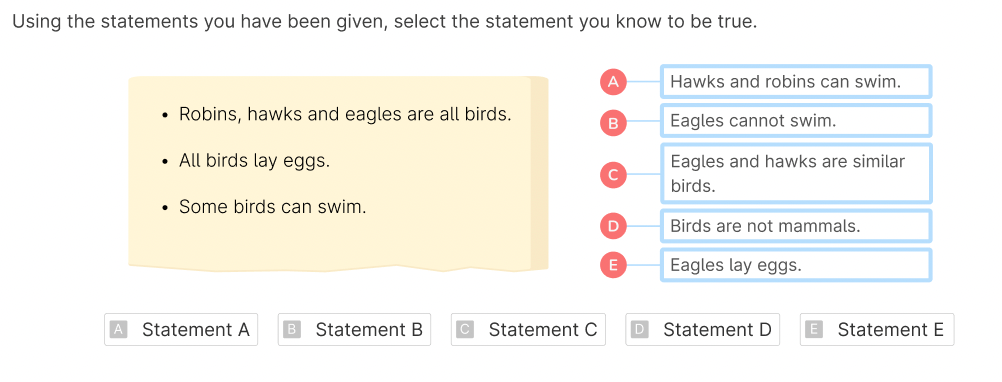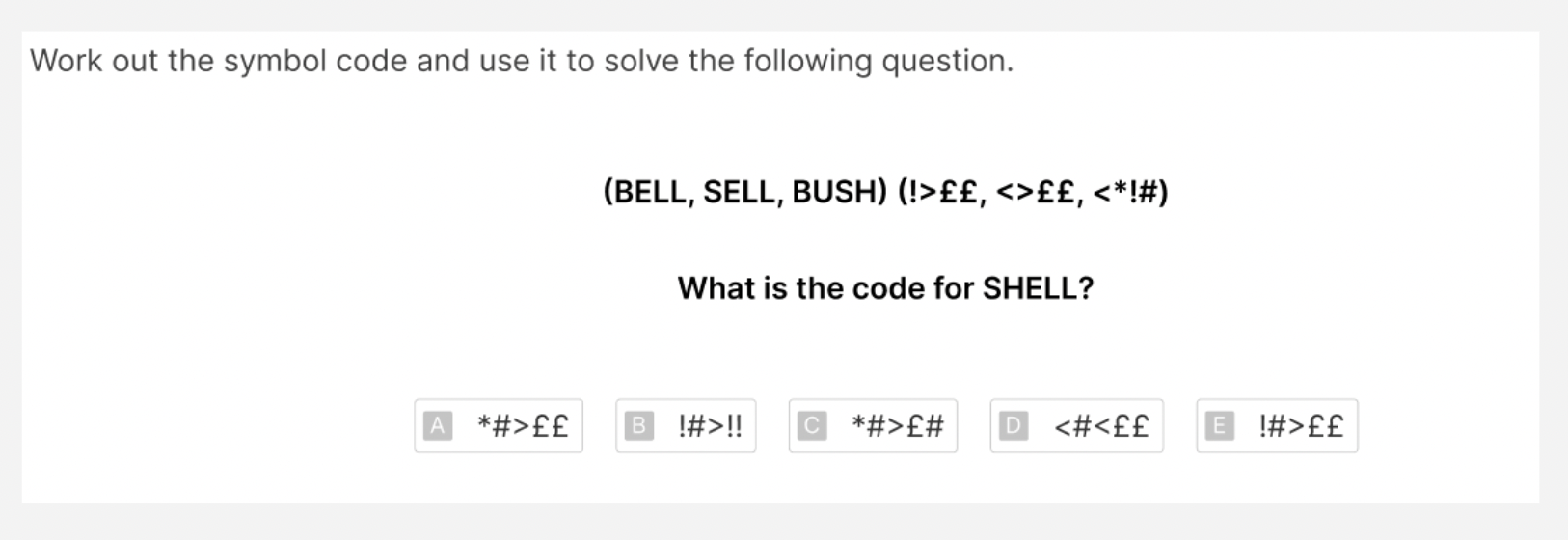Contents
Verbal reasoning is a key part of many 11 plus exams. In this article, we'll unpack what verbal reasoning really means and what types of questions your child can expect. We'll also share how to help your child feel truly prepared for their 11 plus verbal reasoning exam.
What is verbal reasoning?
Verbal reasoning tests your child’s ability to reason and solve problems with written information. At 11 plus, verbal reasoning assesses:
Reading fluency and comprehension
Vocabulary knowledge
Phonological awareness
Logic and problem-solving
Ability to discover and apply rules
Attention to detail
Don’t be fooled by the word ‘verbal’, as the exam does not only include the manipulation of words and letters. Your child will come across numbers and symbols too. However, as most questions will require an understanding of the meaning of words and the relationship between certain words, a wide vocabulary is essential.

The types of questions used vary depending on which exam board the school uses (for example, GL Assessment, CEM Select or ISEB). Questions can also vary in length – some contain only a few words while others contain a few sentences and are designed to take longer.
Introduction to verbal reasoning
Common types of verbal reasoning question
Vocabulary
Synonyms
Antonyms
Homonyms
Odd ones out
Identifying connections
Finding words
Jumbled words
Jumbled sentences
Finding a missing word
Anagrams
Building words
Joining words
Morphing words
Transferring letters
Identifying missing letters
Codes and sequences
Solving codes (using letters, numbers and/or symbols)
Solving sequences (using letters, numbers and/or symbols)
Logic
Statement logic
Deductions
Number logic
Letter logic
Verbal reasoning example questions
Here are examples of some common verbal reasoning question types – and top tips for how to tackle them!
Scrambled words
In 'scrambled/jumbled word' questions, your child will need to identify which of the options is the word once unscrambled.

Top tip
Use the clue (which is a synonym of the unscrambled word), and note any letters in the options that do not match the letters in the scrambled word.
For instance, option E can immediately be eliminated as there is no 'i' in the scrambled word.
Synonyms
Your child will need to select two words from the options provided that are closest in meaning - one from the group before the line, and one from the group after the line.

Top tip
Work through each of the options in the first group, matching them up with the second group. Does 'greedy' align with 'stubborn', 'obtuse' or 'jealous'?
If not, proceed to 'obstinate' and follow the same procedure.
Join the words
A new word can be formed from one word in each bracket set. You will need to select two options from the list provided that, when put together, create a new word.

Top tip
Use the same logic as the previous example. Take 'bare': are 'barering', 'baretrust' or 'baremate' words?
Move on to the second word, 'stale', and use the same process.
Statement logic
Your child will see a short passage of text and will need to select the correct statement based on their comprehension of the text.

Top tip
Work through each statement one at a time. Look at statement A: does the text explicitly say that hawks and robins can swim?
If there's nothing in the text to explicitly say this is the case, mark this as incorrect and move on to the next statement.
Note that there is only one correct answer.
Solve the code
In these questions, letters, numbers or symbols will represent a certain code that needs to be solved.

Top tip
On spare paper (or in the space around the question), solve each letter at a time. Take BELL as an example – the code for this is !>££. Therefore, we know that:
B = !
E = >
L = £
Get your child to solve each letter, which will help them to form the code for the new word.
Verbal reasoning question pack
Here are ten verbal reasoning sample questions in PDF format to help your child practise.
The pack also contains an answer sheet with explanations of the steps to approach each question. You can work through these together with your child to help them build their understanding.
How to prepare for 11 plus verbal reasoning
Here are our top tips to help your child feel well-prepared for their verbal reasoning exam.
It can be tempting to jump straight into practice papers to prepare for exams. But this is not an effective way to learn and can cause children to feel demotivated. Your child should have a good understanding of the different verbal reasoning question types before testing their knowledge with practice papers.
Use a ‘little and often’ approach when recapping content, as our brains encode new information more effectively when dealing with smaller ‘chunks’ of information. Experts recommend study sessions should last no longer than 30 minutes for children aged 10–11.
There's an easier way to prepare for the 11 plus
Wondering how to make sure your child understands the whole 11 plus curriculum and stays on track with their progress? Atom Nucleus is an online course for grammar school and private school exams.
It's been designed by teachers, to give you a clear pathway to achieve the entry requirements of your target school.
Track your child's standardised age score
Compare with other school applicants
Know they're on track for 11 plus success – and have the data to back it up!
Boost your exam skills with 11 plus practice tests. Feel confident and know what to expect on test day.
Practice tests
Build knowledge
Track progress
See how stress-free the 11 plus can be.
Contents
